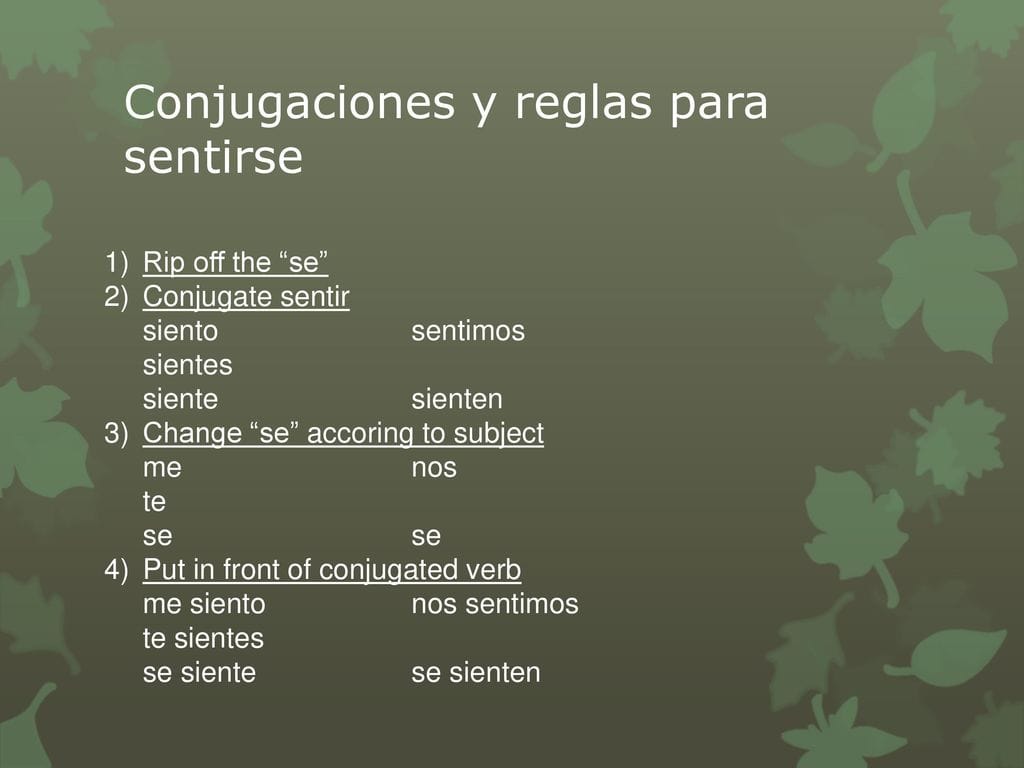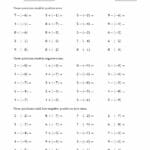This guide provides a deep dive into conjugating the Spanish verb sentir, meaning “to feel” or “to regret.” Whether you’re a beginner or looking to refine your skills, this guide will equip you to express feelings and sensations accurately in Spanish. Are you an active student in Vicksburg? Join our dynamic community of learners today! Need a refresher on math? Check out our adding and subtracting integers worksheet.
Understanding Sentir
Sentir is essential for expressing emotions in Spanish, from simple feelings like happiness and sadness to more complex ones. Its irregularity adds a layer of complexity, but understanding the patterns will unlock a new level of communication. Mastering sentir also allows you to use common phrases like “Lo siento” (I’m sorry) correctly.
Sentir Conjugation Tables
Sentir is a stem-changing verb. This means the stem (the core part of the word) changes depending on the tense and pronoun. Let’s break down the conjugations.
Present Tense (Expressing Current Feelings)
In the present tense, the stem often changes from e to ie, except for nosotros and vosotros.
| Pronoun | Conjugation | Example |
|---|---|---|
| Yo | siento | Yo siento alegría (I feel joy) |
| Tú | sientes | Tú sientes frío (You feel cold) |
| Él/Ella/Usted | siente | Él siente tristeza (He feels sadness) |
| Nosotros/Nosotras | sentimos | Nosotros sentimos orgullo (We feel pride) |
| Vosotros/Vosotras | sentís | Vosotros sentís calor (You all feel hot) |
| Ellos/Ellas/Ustedes | sienten | Ellos sienten entusiasmo (They feel enthusiasm) |
Preterite Tense (Expressing Past Feelings)
In the preterite tense, the stem changes from e to i in the third person singular and plural.
| Pronoun | Conjugation | Example |
|---|---|---|
| Yo | sentí | Yo sentí miedo (I felt fear) |
| Tú | sentiste | Tú sentiste alivio (You felt relief) |
| Él/Ella/Usted | sintió | Ella sintió dolor (She felt pain) |
| Nosotros/Nosotras | sentimos | Nosotras sentimos felicidad (We felt happiness) |
| Vosotros/Vosotras | sentisteis | Vosotros sentisteis sorpresa (You all felt surprise) |
| Ellos/Ellas/Ustedes | sintieron | Ellos sintieron envidia (They felt envy) |
Future Tense (Expressing Future Feelings)
The future tense of sentir is regular, following standard conjugation patterns. Simply add the future endings to the infinitive form, sentir.
| Pronoun | Conjugation | Example |
|---|---|---|
| Yo | sentiré | Yo sentiré alivio pronto (I will feel relief soon). |
| Tú | sentirás | Tú sentirás la diferencia (You will feel the difference). |
| Él/Ella/Usted | sentirá | Él sentirá remordimiento (He will feel remorse). |
| Nosotros/Nosotras | sentiremos | Nosotras sentiremos nostalgia (We will feel nostalgic). |
| Vosotros/Vosotras | sentiréis | Vosotros sentiréis alegría (You all will feel joy). |
| Ellos/Ellas/Ustedes | sentirán | Ellos sentirán orgullo (They will feel proud). |
Present Subjunctive (Expressing Hypothetical Feelings)
The present subjunctive introduces stem changes. The e becomes ie for tú, usted, and ustedes, and i for vosotros. This tense is used to express desires, doubts, possibilities, and emotions in hypothetical situations.
| Pronoun | Conjugation | Example |
|---|---|---|
| Yo | sienta | Espero que sienta mejoría (I hope he/she feels better). |
| Tú | sientas | Quiero que sientas la emoción (I want you to feel the excitement). |
| Él/Ella/Usted | sienta | Es importante que sienta empatía (It’s important that he/she/you feels empathy). |
| Nosotros/Nosotras | sintamos | Necesitamos que sintamos confianza (We need to feel confident). |
| Vosotros/Vosotras | sintáis | Es esencial que sintáis seguridad (It’s essential that you all feel safe). |
| Ellos/Ellas/Ustedes | sientan | Deseo que sientan la felicidad (I wish for them/you all to feel happiness). |
Imperative Mood (Giving Commands Related to Feelings)
The imperative mood directs someone to feel (or not feel) a certain way. Stem changes occur in both affirmative and negative commands.
| Affirmative | Translation | Negative | Translation |
|---|---|---|---|
| siente (tú) | Feel (you informal) | no sientas (tú) | Don’t feel (you informal) |
| sienta (usted) | Feel (you formal) | no sienta (usted) | Don’t feel (you formal) |
| sintamos (nosotros) | Let’s feel | no sintamos (nosotros) | Let’s not feel |
| sentíos (vosotros) | Feel (you all) | no sintáis (vosotros) | Don’t feel (you all) |
| sientan (ustedes) | Feel (you all formal) | no sientan (ustedes) | Don’t feel (you all formal) |
Other Tenses and Resources
While this guide covers the most common tenses, you’ll eventually want to explore the imperfect, conditional, and other more nuanced forms. Resources like SpanishDict and verb conjugation apps offer comprehensive tables and can be invaluable tools.
Sentir vs. Sentirse
It’s important to distinguish between sentir and sentirse. Sentir typically refers to feeling a physical sensation or emotion directed outward (e.g., “Siento el frío” – I feel the cold), whereas sentirse focuses on an internal state of being (e.g., “Me siento feliz” – I feel happy). For a deeper dive into sentirse, see our guide on conjugating sentirse.
Putting Sentir into Practice
Learning a language is about communication. Practice using sentir in real conversations. Don’t be afraid to make mistakes; each attempt strengthens your understanding.
Additional Insights on Sentir
- Similar Verbs: Arrepentirse (to regret) and lamentar (to lament).
- Gerund: Sintiendo (feeling) – describes ongoing actions.
- Past Participle: Sentido (felt) – used in perfect tenses.
- Infinitive: Sentir (to feel).
- Common Mistakes: Learners often confuse sentir and sentirse, and struggle with stem changes. Regular practice can alleviate these challenges.
This comprehensive guide equips you with the tools to master sentir. By understanding its nuances and practicing regularly, you can express yourself with clarity and confidence in Spanish. Now go forth and feel the language!
Conjugating Sentir in French
While this guide focuses on Spanish, the French verb sentir also means “to feel” and “to smell.” It utilizes the auxiliary verb avoir in compound tenses and has a reflexive form, se sentir (to feel oneself). For more on French sentir, check out our guide on conjugating sentir in French.
- Unveiling the Enigma: Mansoureh Khojasteh Bagherzadeh’s Public Appearances & Private Life in Iran - July 18, 2025
- Unveiling the Mystery: Mansoureh Khojasteh Bagherzadeh’s Husband: A Rare Glimpse into a Private Life - July 18, 2025
- Unveiling Masoud Khamenei’s Mother: Power, Influence, and Iran’s Future - July 18, 2025
















